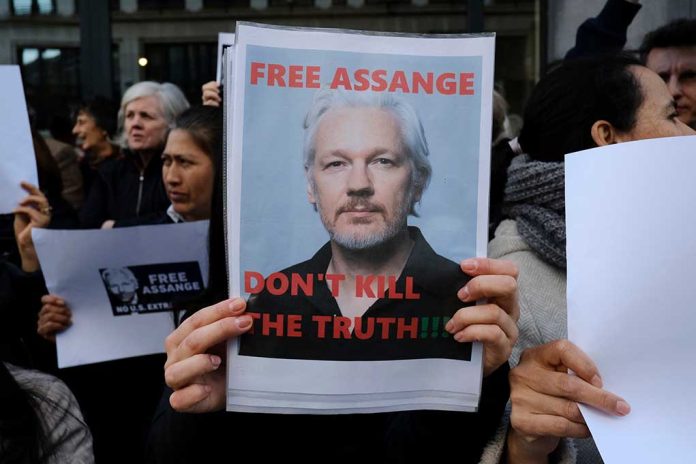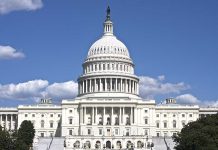
Julian Assange has been released from British prison after five years but warns of continuing threats to press freedom.
At a Glance
- Julian Assange has been imprisoned in the U.K. for five years, awaiting extradition to the U.S.
- The U.S. amended the indictment to add 17 counts under the Espionage Act.
- Press freedom and human rights groups view this prosecution as a threat to journalism.
- The Biden administration could end this threat by dropping the case against Assange.
- Assange highlighted ongoing threats to press freedom in Europe and globally.
Assange’s Release and Plea Deal
Julian Assange, the founder of WikiLeaks, was released from British prison after serving five years following a plea deal with U.S. authorities. During a press conference, he stated, “I eventually chose freedom over unrealisable justice, after being detained for years and facing a 175-year sentence with no effective remedy.” Assange highlighted the significance of his release for press freedom globally but warned that threats to journalists are far from over.
Assange was imprisoned awaiting extradition to the U.S., facing charges under the Espionage Act for publishing classified U.S. military documents. The U.S. amended the indictment to add 17 counts under the Espionage Act, which many believe endangers press freedom. Press freedom and human rights groups, along with law professors, have strongly condemned the prosecution as a severe threat to journalism.
Impact on Press Freedom
The prosecution of Assange is an unprecedented move with serious ramifications for journalism. Former DOJ spokesperson Matthew Miller noted that prosecuting Assange under the Espionage Act could set a precedent for prosecuting other journalists, a move that could chill journalistic activities and discourage the publication of government secrets. The possible misuse of the Espionage Act poses a significant challenge to democratic principles anchored in press freedom.
Assange, who gained prominence in 2010 for publishing leaks from Chelsea Manning, has since become a symbol of the fight for press freedom. His recent plea deal to conspire to obtain and disclose classified U.S. documents allowed him to walk free. However, this deal sends a powerful and potentially intimidating message to national security journalists worldwide.
Global Reactions
Governments, press freedom advocates, and human rights groups across the globe have reacted strongly to Assange’s prosecution. A delegation of Australian politicians is set to visit Washington, D.C., to urge U.S. officials to drop the charges against Assange. This case will also be a focal point during Australian Prime Minister Anthony Albanese’s state visit in October. Many argue that the U.S. loses its credibility in opposing repressive actions against journalists globally while pursuing charges against Assange.
Assange underscored the broader implications of his case. Urging European lawmakers to protect freedom of expression, he highlighted the increasing secrecy and retaliation journalists face for revealing the truth. The Council of Europe is set to debate a resolution condemning the severe charges against Assange by the U.S., criticizing the misuse of the Espionage Act and the UK’s failure to protect his rights.
A Precedent for the Future of Journalism
The plea deal Julian Assange reached represents an ambiguous end to his legal saga. While it averted a potential press freedom catastrophe, the deal left unresolved the broader legal principles at stake. This new precedent may intimidate national security journalists, reducing aggressive reporting crucial for democratic oversight.
Assange’s release has highlighted the essential role of a free press in holding those in power accountable. However, it also serves as a stark reminder of the fragile state of press freedoms globally, underscoring the need for robust protections for journalists and their fundamental right to inform the public.













